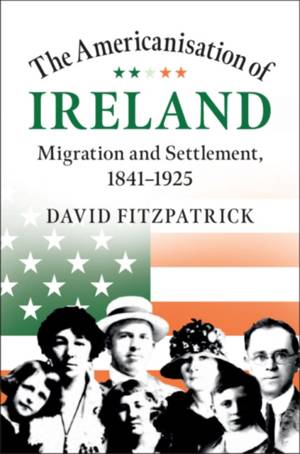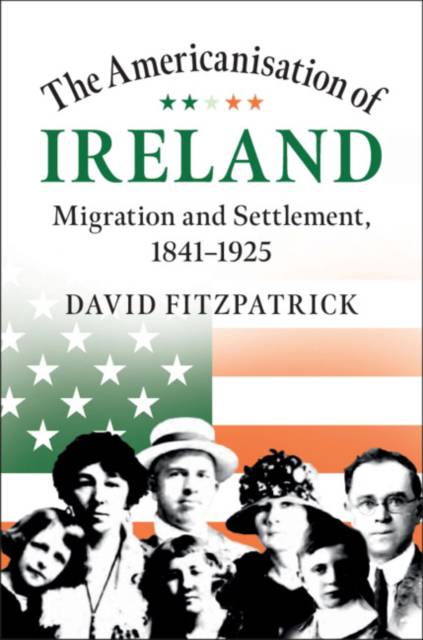
Je cadeautjes zeker op tijd in huis hebben voor de feestdagen? Kom langs in onze winkels en vind het perfecte geschenk!
- Afhalen na 1 uur in een winkel met voorraad
- Gratis thuislevering in België vanaf € 30
- Ruim aanbod met 7 miljoen producten
Je cadeautjes zeker op tijd in huis hebben voor de feestdagen? Kom langs in onze winkels en vind het perfecte geschenk!
- Afhalen na 1 uur in een winkel met voorraad
- Gratis thuislevering in België vanaf € 30
- Ruim aanbod met 7 miljoen producten
Zoeken
The Americanisation of Ireland
Migration and Settlement, 1841-1925
David Fitzpatrick
Hardcover | Engels
€ 76,45
+ 152 punten
Omschrijving
Irish emigration to America is one of the clichés of modern Irish history; much less familiar is the reverse process. Who were the people who chose to return to Ireland? What motivated them? How did this affect Irish society? While many European countries were somewhat Americanised in this period, the Irish case was unique as so many Irish families had members in America. The most powerful agency for Americanisation, therefore, was not popular culture but circumstantial knowledge and personal contact. David Fitzpatrick demonstrates the often unexpected ways in which the reverse effects of emigration remoulded Irish society, balancing original demographic research with fascinating individual profiles to assemble a vivid picture of a changing Ireland. He explores the transformative impact of reverse migration from America to post-Famine Ireland, and offers penetrating insights into its growing population of American-born residents.
Specificaties
Betrokkenen
- Auteur(s):
- Uitgeverij:
Inhoud
- Aantal bladzijden:
- 270
- Taal:
- Engels
Eigenschappen
- Productcode (EAN):
- 9781108486491
- Verschijningsdatum:
- 6/02/2020
- Uitvoering:
- Hardcover
- Formaat:
- Genaaid
- Afmetingen:
- 160 mm x 229 mm
- Gewicht:
- 589 g

Alleen bij Standaard Boekhandel
+ 152 punten op je klantenkaart van Standaard Boekhandel
Beoordelingen
We publiceren alleen reviews die voldoen aan de voorwaarden voor reviews. Bekijk onze voorwaarden voor reviews.









